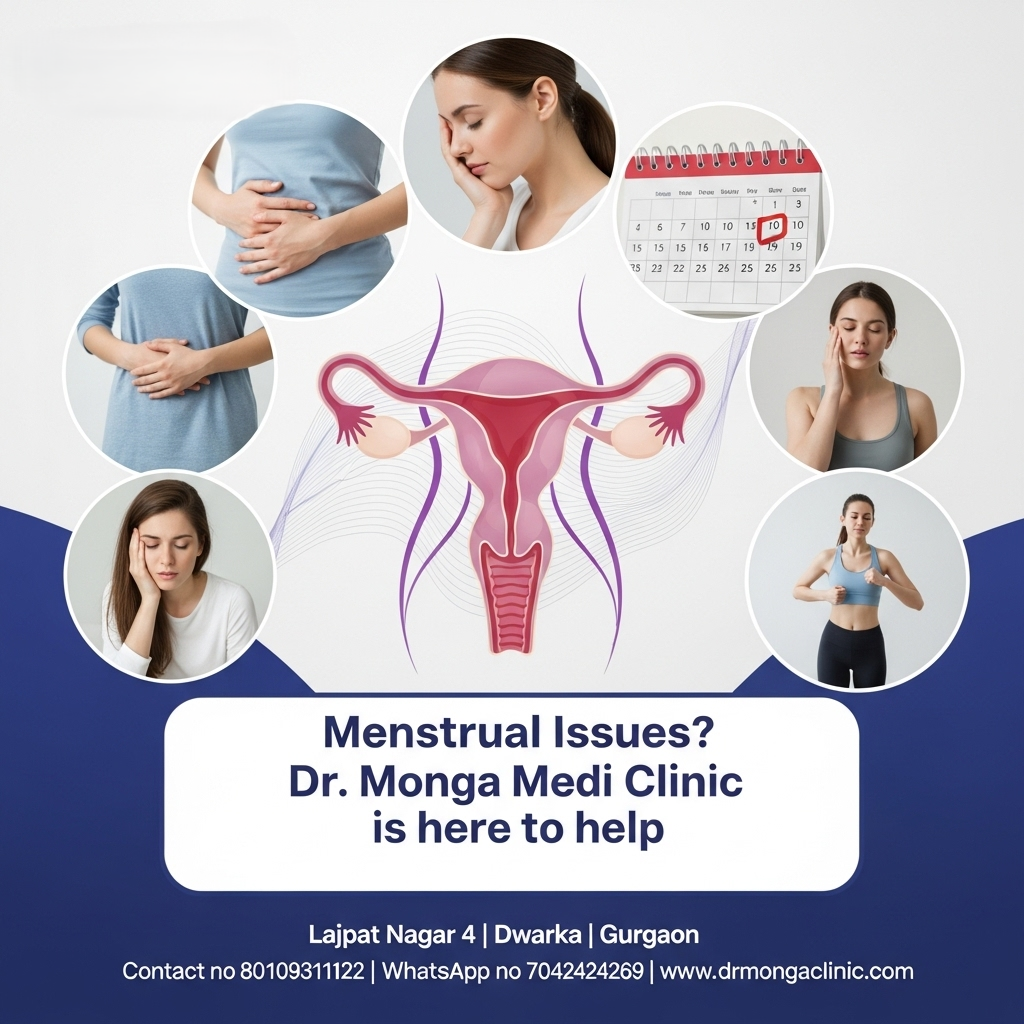PCOS is a common disease affecting millions of women worldwide.
Finding the right medical professional like Dr. Monga to manage and treat PCOS is vital to maintaining your overall health and well-being.
Understanding PCOS and Its Impact
PCOS is a hormonal disorder characterized by irregular menstrual cycles, excessive androgen levels, and polycystic ovaries. It can cause a number of symptoms such as weight gain, acne, hair loss, and fertility issues.
Although PCOS is not life-threatening, it can significantly impact a woman’s quality of life. Therefore, it is important to find the right healthcare provider like Dr. Monga to control symptoms and prevent complications.
PCOS vs. PCOD: Which Is More Dangerous?
Many wonder whether PCOD or PCOS is more dangerous. While both are hormonal disorders, PCOS is generally considered more severe due to its hormonal imbalance aspect, which can lead to more pronounced symptoms and complications. If you suspect you have either condition, consulting a women’s health doctor, such as Dr. Monga, for a proper diagnosis and treatment plan is crucial.
Why You Need a Specialized PCOS Doctor
Not all doctors are able to deal with the complexities of PCOS. A specialist PCOS doctor, often an endocrinologist or gynecologist experienced in hormonal disorders, can provide comprehensive care tailored to your needs.
Dr. Monga is an example of a professional familiar with the latest treatments, providing personalized advice to help you manage your symptoms effectively.
Benefits of Consulting a PCOS Specialist
- Accurate Diagnosis: A specialist can perform the necessary tests to confirm a PCOS diagnosis and differentiate it from other conditions with similar symptoms.
- Customized Treatment Plans: They can develop a treatment strategy that addresses your specific symptoms and health goals, whether it’s regulating menstrual cycles, managing weight, or improving fertility.
- Ongoing Support: A dedicated PCOS doctor, like Dr. Monga, offers continuous support and monitoring to adjust treatments as needed, ensuring optimal health outcomes.

How to Find the Best PCOS Doctor Near You
Finding the right doctor can be a daunting task, but with the right approach, you can locate a healthcare provider who meets your needs.
Start with Recommendations
Begin by asking friends, family, or your primary care physician for recommendations. Personal referrals can provide insight into a doctor’s expertise and bedside manner.
Research Online
Use online resources to search for “PCOS treatment near me” or “best PCOS doctor near me.” Websites like Healthgrades, Zocdoc, and Vitals offer patient reviews and ratings that can help you evaluate potential doctors, including Dr. Monga.
Check Credentials and Experience
Once you have a list of potential doctors, verify their credentials. Ensure they are board-certified in their specialty and have experience treating PCOS. You can usually find this information on the doctor’s website or by contacting their office directly.
Consider Accessibility
Choose a doctor whose office is conveniently located and offers appointment times that fit your schedule. Accessibility is important to ensure regular visits and ongoing care.
Schedule a Consultation
Before making a final decision, schedule a consultation with the doctor. This meeting allows you to discuss your symptoms, ask questions, and assess whether the doctor is a good fit for you.
Evaluate Communication Style
During the consultation, pay attention to the doctor’s communication style. A good PCOS doctor, such as Dr. Monga, should listen to your concerns, explain treatment options clearly, and make you feel comfortable and supported.
What to Expect During Your First Visit
Your first visit to a PCOS doctor will likely involve a detailed discussion of your medical history, a physical examination, and possibly some diagnostic tests.
Medical History and Symptoms
The doctor will ask about your menstrual cycle, symptoms, and any previous treatments you have tried. Be prepared to provide detailed information to help with an accurate diagnosis.
Physical Examination and Tests
A physical examination may include checking for signs of excess hair growth, acne, or weight gain. Blood tests may be ordered to measure hormone levels, and an ultrasound might be used to examine your ovaries.
Treatment Options for PCOS
Treatment for Polycystic Ovary Syndrome often involves a combination of lifestyle changes and medication. The goal is to manage symptoms and reduce the risk of complications.
Read more – white discharge treatment near me
Lifestyle Modifications
Adopting a healthy diet and regular exercise can help manage weight and improve insulin sensitivity. Your doctor may recommend specific dietary changes or refer you to a nutritionist for guidance.
Medications
Common medications for PCOS include birth control pills to regulate menstrual cycles, anti-androgens to reduce male hormone levels, and metformin to improve insulin resistance.
Fertility Treatments
If you are trying to conceive, your doctor, such as Dr. Monga, may suggest fertility treatments such as ovulation induction or in vitro fertilization (IVF).
by The Worthy Goods (https://unsplash.com/@theworthygoods)
Conclusion
Finding the best PCOS doctor near you, such as Dr. Monga, is a critical step in managing your health and improving your quality of life. By following the steps outlined in this article, you can locate a healthcare provider who understands your needs and can offer effective treatment options. Remember, managing Polycystic Ovary Syndrome is a journey, and having the right support can make all the difference.

Leave a Reply